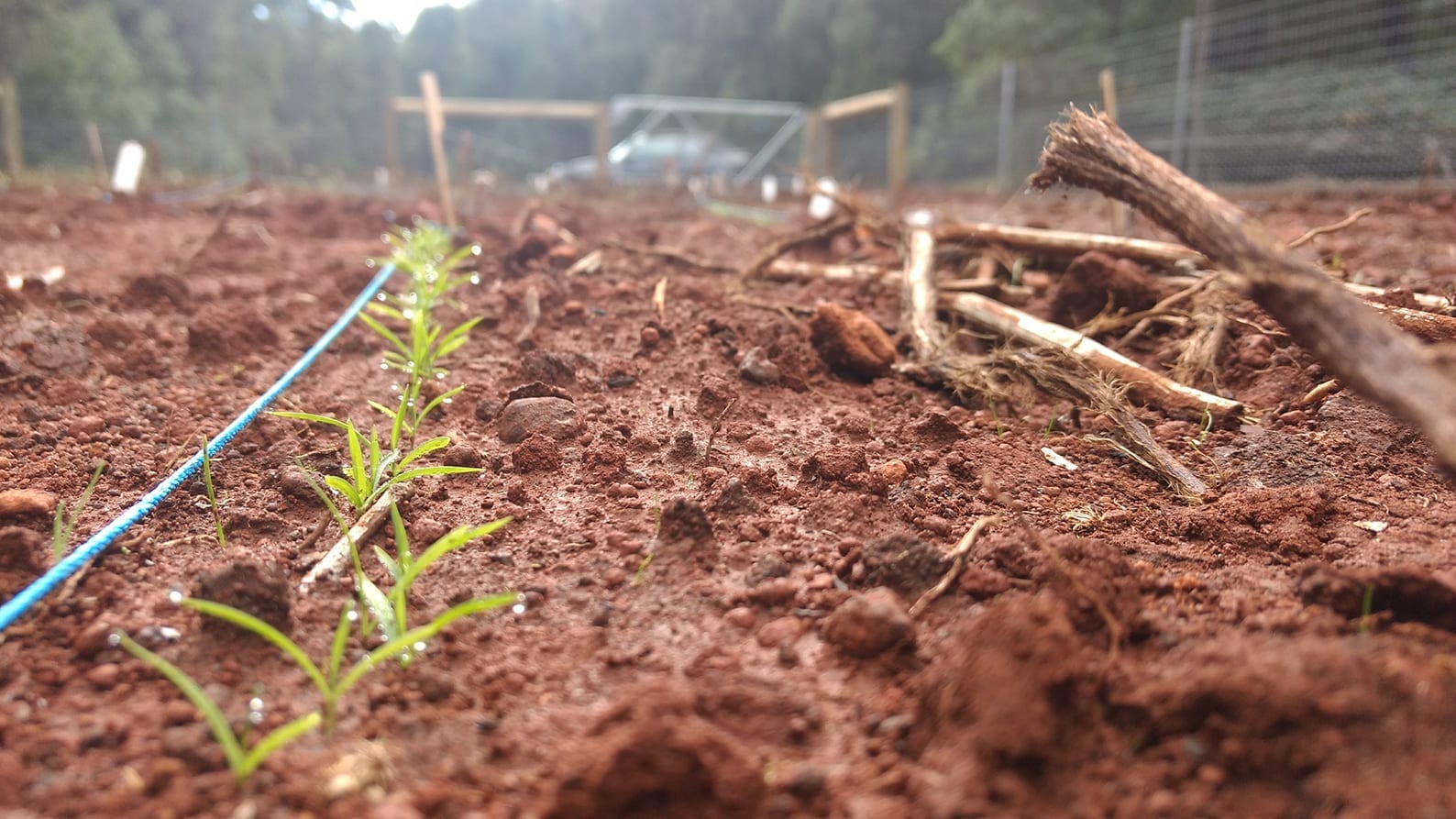
via Curtin University
New Curtin research has shown how a readily available, cheap and safe-to-use product found in the medicine cabinet of most homes could be the key to better ecological restoration practices with major benefits for the environment and agriculture.
The study revealed that aspirin, which naturally occurs in the bark of the willow tree and other plants, can improve the survival of grass species important for ecological restoration and sustainable pasture when applied in a seed coating.
Lead researcher Dr Simone Pedrini from the ARC Centre for Mine Site Restoration in Curtin’s School of Molecular and Life Sciences, said salicylic acid has been used for its medicinal properties for more than 4000 years and its modern synthetic version, acetylsalicylic acid, or aspirin, is one of the most widely used medications in the world.
“Our research found that aspirin can do more than just ease a headache; it can also help restore degraded land and ecosystems and establish sustainable pastures through improving plant growth and survival,” Dr Pedrini said.
“This study was performed on native perennial grasses and showed that applying very low concentrations of salicylic acid to the seed can improve plant survival and therefore its effectiveness in reaching restoration goals.
“Salicylic acid was already known for its ability to improve stress resistance for plants such as tomatoes, making it useful for the agricultural industry, but its effect on native species and potential to aid landscape restoration was still unknown.”
Research team member and Director of the ARC Centre for Mine Site Restoration, John Curtin Distinguished Professor Kingsley Dixon said salicylic acid was applied to the seeds of the native grass species using a technology called seed coating, perfected by Curtin University researchers, that allows seed shape and size to be modified, improving seeding efficiency, and can be used to carry growth benefiting compounds.
“This is the first study to deliver aspirin via coating on native species which means the technology can be scaled up for improving restoration targets such as the UN Decade on Ecosystem Restoration to be launched on 5 June 2021,” Professor Dixon said.
“Further research is now needed to test salicylic acid as a coating in other wild species to improve native plant resistance to drought, extreme temperatures, salinity, pathogens, and herbicides.
“Moreover, coating with salicylic acid in combination with other beneficial compounds should be tested on a broader array of plant species used in restoration, as their combined impact on seed germination, emergence, growth and plant establishment could improve the successful deployment of native seed onto degraded landscapes, ultimately allowing for a more efficient seed-based restoration.”
The full paper, ‘Seed encrusting with salicylic acid: a novel approach to improve establishment of grass species in ecological restoration’ was published in PLOS ONE and can be found online here.
Original Article: Curtin study finds aspirin takes the headache out of restoration
More from: Curtin University
The Latest Updates from Bing News & Google News
Go deeper with Bing News on:
Aspirin for ecosystem restoration
- Search the United Nations
This is the third Mother Earth Day celebrated within the UN Decade on Ecosystem Restoration. Ecosystems support all life on Earth. The healthier our ecosystems are, the healthier the planet - and ...
- Stopping aspirin after stent implant may safely cut risk of bleeding
People who've survived a heart attack and have been given a stent may be better off quitting low-dose aspirin a month after the procedure, a new study finds. The strategy is "beneficial by ...
- Aspirin Therapy: Right for Your Heart?
Sandra Rose, a nurse in Raleigh, NC, started taking a daily aspirin because "it seemed like a wonder drug," preventing heart attacks and strokes. "All the patients seemed to be on a low-dose ...
- Aspirin Shows Promise In Treating Common Liver Disease
Daily, low-dose aspirin may be an effective treatment for a common type of liver disease, according to a new study. Metabolic dysfunction-associated steatotic liver disease (MASLD) is ...
- Aspirin News and Research
Long-term daily use of aspirin can help to prevent the development and progression of colorectal cancer, but the mechanisms involved have been unclear. Extensive study explores acetaminophen use ...
Go deeper with Google Headlines on:
Aspirin for ecosystem restoration
[google_news title=”” keyword=”aspirin for ecosystem restoration” num_posts=”5″ blurb_length=”0″ show_thumb=”left”]
Go deeper with Bing News on:
Ecosystem restoration
- How restoration of wetlands, streams can improve water quality, biodiversity in Nigeria —US-based scientist
In this interview with IFEDAYO OGUNYEMI, Samuel Babatunde, an environmental scientist and researcher at the Western Illinois University, ...
- Innovative Financing For Amazon Region Preservation And Restoration
This is the third blog in our three-part series about Cisco Foundation partner organizations working in the Amazon and South America region. You can ...
- Green Credit Program: Prioritizing Ecosystem Restoration for Sustainable Environmental Action
As India continues its journey towards environmental conservation, initiatives like the Green Credit Program will play an important role in shaping the future of sustainable practices.
- East China wetland project selected as key case of UN Decade on Ecosystem Restoration
HEFEI, April 23 (Xinhua) -- The Eighteen Polder Wetland Restoration Phase III Project, part of the Shan-Shui Initiative in Anhui Province's Chaohu Lake Basin, has been selected as a demonstrative ...
- Riparian and stream ecosystem workshop for Eagle Mountain Lake watershed will be on May 14 in Azle
The Texas Water Resources Institute, TWRI, will host a free Texas Riparian and Stream Ecosystem Education Program on May 14 in Azle.
Go deeper with Google Headlines on:
Ecosystem restoration
[google_news title=”” keyword=”ecosystem restoration” num_posts=”5″ blurb_length=”0″ show_thumb=”left”]










